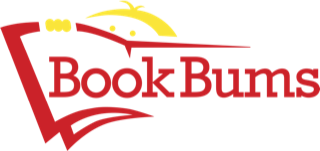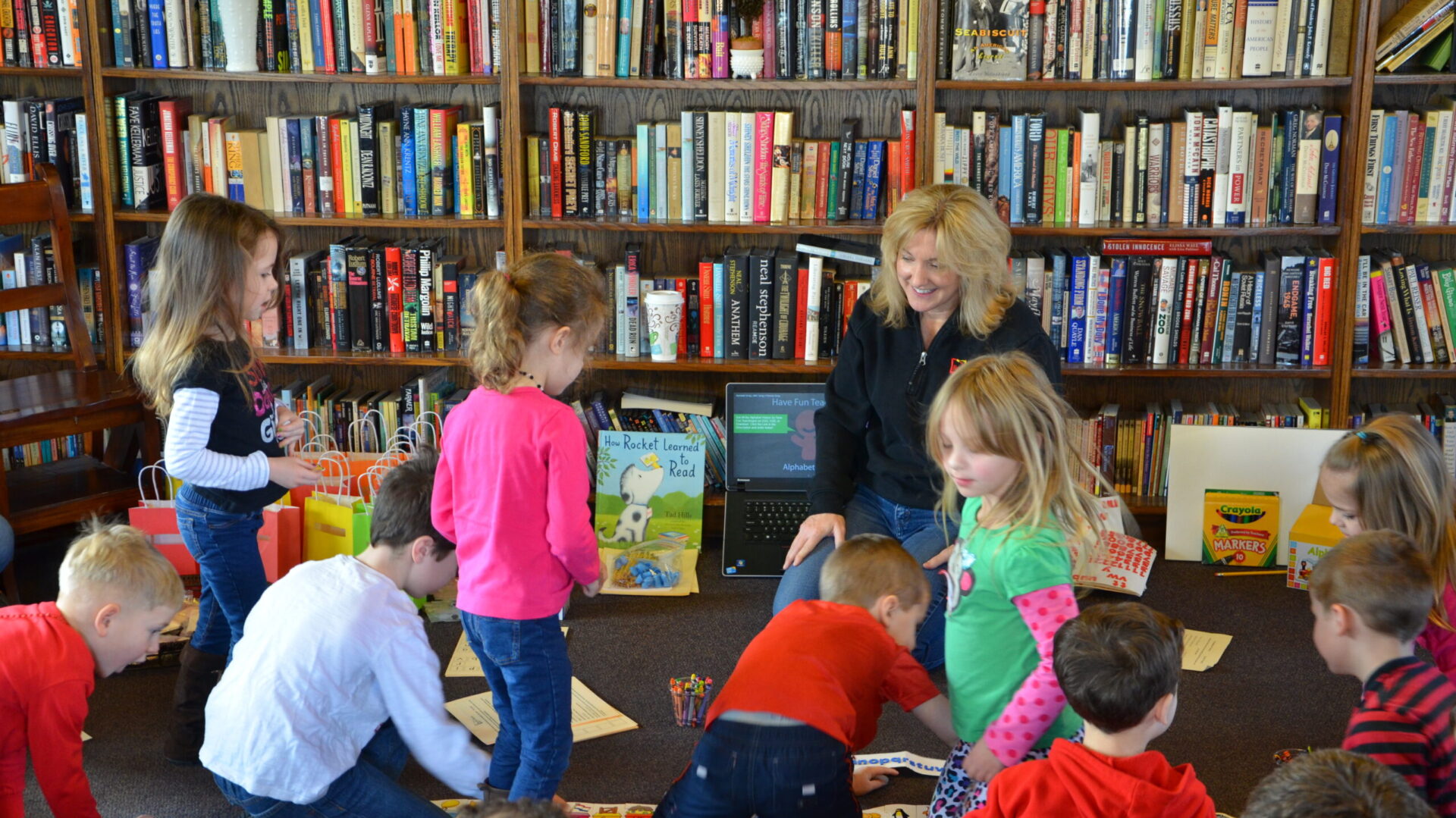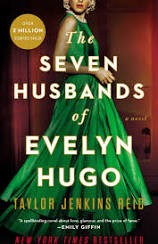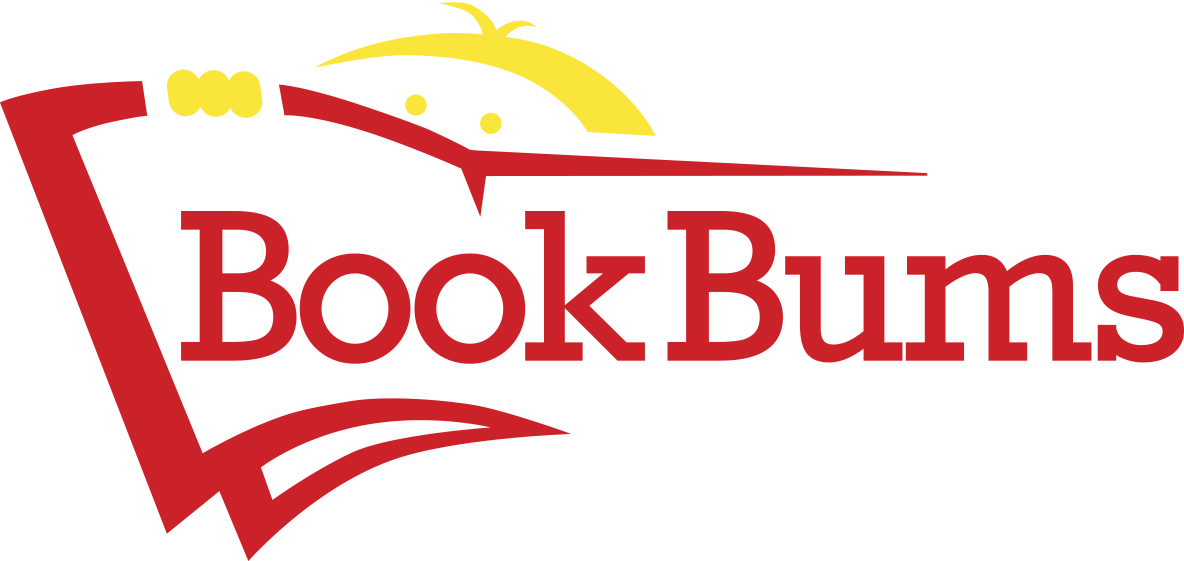
Hello Book Bums families!
Happy October! All this month in the newsletter we'll be sharing ideas related to tricks and treats. This week we have a treat idea along with a book recommendation, family-friendly riddles, and the insights and tips about language and reading you count on Book Bums to provide. Happy reading!
Bookbums.com is an Amazon Associate; We earn from qualifying purchases. This means that if you click on a link to Amazon.com and make a purchase, We may earn a small commission at no extra cost to you. We do recommend the products. Feel free to find them by other means.
Word of the Week
pacify (pass-eh-fi) verb/action word - to soothe, appease, or settle
Since he had run out of Halloween candy, Frank tried to pacify the trick-or-treaters by giving out coins and trinkets.
Wordology Workshop
• The Latin root pac means peace.
• You can find it in our Word of the Week pacify along with other words such as pact, pacifist and pacifism.
• You also find it in the word pacific. Can you make a connection between the root pac and the ocean?
Literary Calendar
• October 6 is Mad Hatter Day.
• This character from Alice's Adventures in Wonderland appears in the books, the Disney movie adaptations, and live action versions of the film.
• He is famous for his tea parties, his riddles, and his hat, which always has a label reading 10/6, indicating the price of his hat - 10 shillings and sixpence.
• If you're looking for costume ideas, the Mad Hatter's colorful, mismatched attire and riddling nature make him a great choice
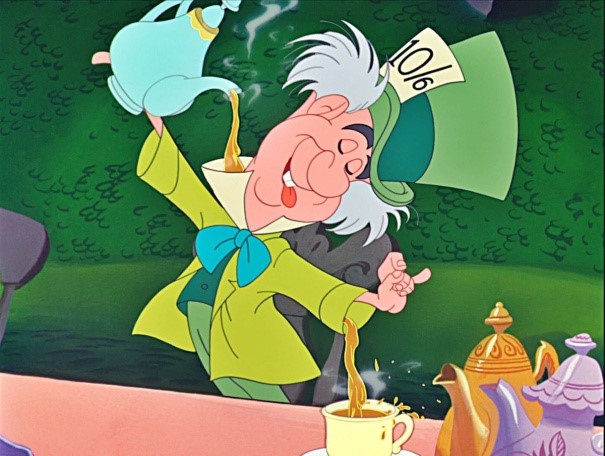
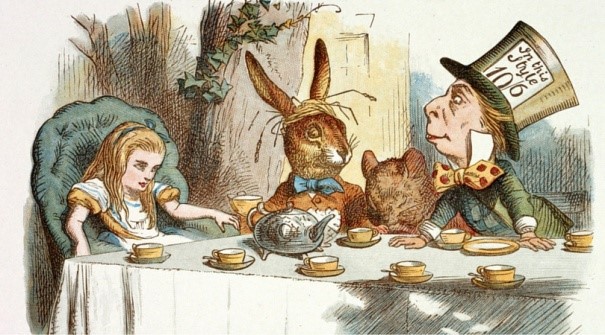
Some family friendly riddles to try at home (Answers at the end of the newsletter):
1. What flies but has no wings?
2. What has a head and a tail but no body?
3. When does Friday come before Thursday?
From our Bookshelves
If you’re looking for a page turner, try reading The Seven Husbands of Evelyn Hugo by Taylor Jenkins Reid.
Because the story is set in Hollywood in the 1950’s and it pays attention to the manners, social conditions and other details of that era, Evelyn Hugo is considered a work of historical fiction. Seventy-nine-year-old Hollywood icon, Evelyn Hugo (said to be based loosely upon Elizabeth Taylor and Ava Gardner), gives exclusive rights to her “tell all” story to Monique, a struggling writer who simply cannot believe her good fortune.
With all its twists and turns, this book will keep you reading late into the night. You’ll meet many colorful characters you’ll come to care about, and even though this book may take you out of your comfort zone, it just might be what you’re looking for.
Tips for Raising Readers and Writers
Have you seen this?
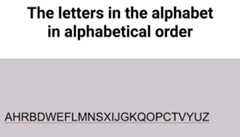
What’s happening here?
When learning the letters of the alphabet and their associated sounds, young children eagerly use what they know to write words. Deciphering what those children have written however can be mystifying to the readers.
Just this weekend, a student trying to spell the word cod wrote crd. Now, I work with kids most every day of every week, and this one took me a few beats to figure out.
Here’s what happened: While stretching out the sounds in the word and then representing each of those sounds with a letter, the letter representing the short o sound eluded the student. With a bit of thought, the student wrote the letter r. Why?
If we spelled the name of the letter r, we might spell it like this / ŏ /+/r/.
The student wrote crd for cod because the first sound in the name of the letter r is /ŏ/. The student wrote r to represent the short o sound.
That is a well thought out strategy, and it often works!
Knowing letter names often helps kids to correctly recall letter sounds. Some letters make their sounds at the beginnings of their names: b, d, j, k, p, t, v, z. These are often easiest sounds for children to recall. Some letters make their sounds at the ends of their names: f, l, m, n, r, s, x. Some letter sounds, the trickiest ones, are not represented in their letter names at all. (i.e., *a, #c, *e, #g, *i, *o, q, *u, w, y)
*short vowel sounds & #soft c & g sounds /s/ & /j/
Note: In the graphic, I (like my student) would have placed the letter r with the o, not with a and h.
Tips for Families
It’s time to start thinking about costumes and tricks and treats!
In truth, we didn’t really celebrate Halloween when our kids young. We had Halleluiah parties instead or we went out to eat and to a movie as a family, and then the kids each got $20 to spend on anything they wanted at the store. We had a few reasons for the decision to eschew the typical Halloween traditions, but over the years I’ve come to embrace the joys of many fun fall festivities.
Throughout this month, I’ll share some ideas with you. I hope you’ll find some ideas that tickle your fancy.
How about this one? Begin (or end) Halloween with the cutest sweet and/or scary donuts! Just add a pacifier or plastic fangs and some eyes and—just like that—you’re the fun parents!
Hint: Be sure to order your donuts ahead of time. Our favorites from Stan the Donut Man (513-759-0016) sell out quickly.



If you don’t have pacifiers, we found these four glow in the dark pacifiers on Amazon for only $6.99.

We also found these five pastel-colored pacifiers for $8.99. You can use them for Halloween and then donate them to a woman’s shelter if your family won’t be needing them.
You can purchase the plastic teeth on Amazon for $6.89 a dozen.
I used chocolate chips for eyes with the fangs, but you could also use candy eyes for both versions if you want to step it up a bit.
Just wash everything that’s reusable and store it with your pumpkin carving tools. Fun!
Practical Grammar
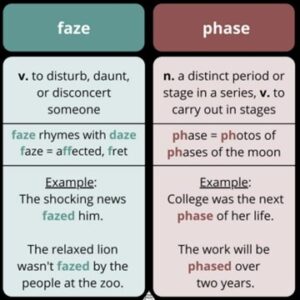
I know this is only a phase, so I try not to let it faze me at all.
News from Book Bums
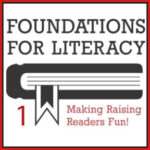
We’re getting close to launching the sale of our Foundations for Literacy lessons so teachers across the nation can use them in their classrooms. The goal is to make them wonderfully affordable so LOTS of kids will have fun as they’re equipped with the code upon which our language is based.
Tips for Teachers
It happens nearly every time I read a book. I see a word that strikes me as odd. Perhaps I hadn’t seen it in a long while. Perhaps never at all. But I grow curious about that word, and I marvel for a moment about its spelling.
Recently, it was the word umbrage that got me thinking. Oh, sure. I’ve heard the word, and I am sure I’ve used it, but I don’t believe I’ve ever seen it. Had I guessed, I might have spelled it umbridge.
To take umbrage means to take offense. Long ago, umbrage was a word for shade or shadows, especially those cast by trees. Today we hear people talk about “throwing shade” when ridiculing someone. Perhaps this is the new way of saying, “I take umbrage with your remarks. You were throwing shade, and I don’t like it. I take offense.” I’m not sure about that, but I’ve now thought about it long enough to make a connection in my mind, and I’m likely to recall my thoughts and spell it correctly.
When we talk with children about our thinking about words, we’re modeling for them how they can reflect upon their own thinking too. It’s beneficial when we talk with our students about how we make connections to recall words and their spellings. This important work certainly promotes oral language and enhances vocabulary development.
Example:
Here’s how I remember the meanings and corresponding spellings of the words discreet and discrete:
discreet: careful with speech to avoid causing offense
The e’s are close together, and I hold information close when I’m close with someone. I avoid sharing potentially delicate information with others.
discrete: individually, separate and distinct
The e’s are separated which reminds me of the word’s meaning.
How do you remember tricky words? Talk about it with your students
Just for Fun

Riddle Answers
1. Time
2. A coin
3. In the dictionary
If you know someone who would benefit from our newsletter or tutoring at Book Bums, please share this email with them! Thank you.
Copyright © 2024 Book Bums, All rights reserved
Our mailing address is:
7967 Cincinnati-Dayton Road Suite L
West Chester, OH 45069
